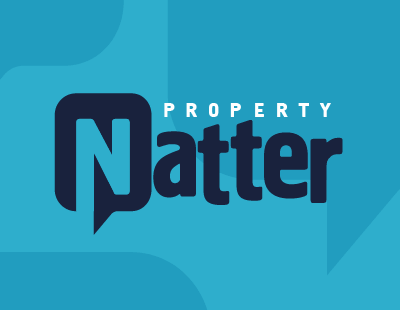We now do so much more online than we ever did. At the start of this decade, social media was still a rising trend and internet usage wasn’t as all-encompassing as it is now. Superfast broadband is now expected rather than desired, while social media dominates the lives of many people, as influential (if not more so) than traditional media.
The majority of people now shop, date, bank, order takeaways, book holidays, debate, communicate, search for properties and listen to music online, while AI/smart technology is having an increasing influence on our lives and electric cars are set to enter the mainstream.
It might not seem like it sometimes, as we live our lives and adapt to change, but the world does look very different now compared to January 2010.
This is true of the property world, too, with more online/hybrid operators, an ever-growing use of PropTech, and much more of the processes involved with property slowly but surely being digitalised. I looked before at whether we were on the verge of entering a paperless and cashless society, and the 2020s could very well be the decade where this becomes a reality.
But what has happened in our industry in the last decade? With a big helping hand from EAT editor Graham Norwood, I seek to provide a quick summary.
2010
General election 1 – a time when David Cameron and Nick Clegg were still fresh-faced, and Gordon Brown was still a major figure in politics. It was the first election where social media had more of an impact and saw the first ever leaders’ debate (now a staple, but a novelty before then). This led to the “I agree with Nick” stance from Cameron/Brown, a Lib Dem surge (largely off the back of a promise to scrap tuition fees!) and ultimately the Coalition government which introduced several controversial housing policies.
Home information packs scrapped – in May 2010, only a few weeks after the election, the controversial packs (popularly known as HIPS) were consigned to history by the incoming government. Launched in 2007, they were dogged by criticism from the off for being costly, unnecessary and a pain in the proverbial.
Stamp duty change 1 - in a pre-election budget, Chancellor Alistair Darling (he of the radical eyebrows) announced a new threshold for first-time buyers to stimulate demand. The stamp duty rate for first-time buyers was 0% for properties up to a value of £250,000, with all other bands and rates staying the same.
2011
Mortgage Market Review – slotting this in here, as it spanned the years from 2009 to 2014 and 2014 is already very full! As Graham says: “This was the unsexy but important review which took place from 2009 to 2014. It was the response to the 2008 mortgage crash and cleaned up the sector, and in turn made it much tougher for buyers to secure mortgages (and reduced transaction numbers as a result).”
Prime Central London surges – while the mainstream UK housing market remained relatively static in 2011, prime property values in central London soared, with prices in Kensington & Chelsea increasing by 10.1% compared to 0.3% for London as a whole. It was one of the few markets that performed well after the 2008 crash.
More buyers for rental market – the buy-to-let market started to motor as tight mortgage availability drove more buyers into the rental market, pushing rents higher.
2012
HomeOwners Alliance founded – Paula Higgins founded the organisation to help represent, champion and serve homeowners and homebuyers. It’s become a key industry voice in the years since.
Stamp duty change 2 – In the 2012 Budget, Chancellor George Osborne announced that properties sold for more than £2 million would be subject to a new 7% stamp duty charge, while stamp duty on residential properties over £2 million bought via a company would increase to 15%.
2013
Help to Buy – the Coalition government’s flagship housing policy offered three types of Help to Buy, all promising to help people buy a home priced up to £600,000 with a deposit of as little as 5%. Shared Ownership was soon brought under the Help to Buy umbrella, and the Help to Buy ISA was launched in Dec 2015 as the government sought to help people onto the housing ladder. It’s safe to say its success as a scheme is hotly disputed, with supporters and fierce critics in equal measure.
Property market bounces back – figures from Hometrack found that 2013 witnessed a resurgence in the property market, with homeowners in 75% of postcodes across England and Wales seeing the value of their home increase – up dramatically from the year before when only 20% of postcodes saw price increases.
2014
easyProperty enters the arena - in September 2014, easyProperty – with its famous orange branding - launched, claiming to be ready to change the face of agency as we know it. It’s been far from smooth sailing since, with ill-advised PR stunts, questionable mergers and a failure to establish itself.
Stamp duty change 3 – Osborne’s December Autumn Statement included a surprise reform of stamp duty which significantly changed the way this tax was levied. The unpopular slab structure was scrapped and stamp duty was instead applied like income tax, with 0% tax on purchases up to £125,000 and then various percentages of stamp duty due depending on the price of the property purchased hereafter.
Purplebricks bursts onto scene – officially launching in April 2014, billing itself as the world’s first 24-hour estate agent, Purplebricks has been in the news arguably more than any other property firm since. Its brand recognition has been exceptional, and it’s undoubtedly shaken up the system, but it’s also carried out disastrous expansion plans, seen its share price crumble, its founders leave and witnessed various other controversies as it’s become the agency every other agency loves to hate.
2015
Portal wars – the portals landscape changed forever when Rightmove and Zoopla’s virtual duopoly was drastically challenged by the launch of agent-owned portal OnTheMarket in January 2015. The handiwork of Agents’ Mutual – itself formed in Jan 2013 – it caused a major splash in the industry and has proved divisive ever since. Supporters say it’s provided a genuine alternative to RM/Zoopla, and point to its rising traffic and listing on the AIM; detractors point to the legal troubles and ill-advised ‘one other portal’ ruling.
General election 2 – all the polls pointed towards a hung parliament, with the Tories and Labour neck-and-neck, but a collapse in the Lib Dem vote and questions marks over Ed Miliband led to a victory for Cameron’s Conservatives – who promised starter homes and an extension to Right to Buy. The sweet taste of success didn’t last long…
YOPA launches – the hybrid agency, which claims to be the second biggest online operator after Purplebricks, was founded in 2015 by Daniel Attia, James and Andrew Barclay, and David Jacobs, with significant investment from DMGT and Savills. It’s arguably still best known for its inventive TV ads and saw speculation about its future grow earlier this year.
2016
The EU referendum – remember those halcyon days when Brexit wasn’t even a word? I think, whether you voted leave or remain, everyone is royally fed up of Brexit three and a half years after the historic vote; and we’re still no clearer on what the outcome will be. It changed all our lives and the property landscape as we know it forever, making it comfortably the biggest event of the last decade and potentially for many decades to come.
Right to Buy ended – Thatcher’s controversial policy was outlawed in Scotland, with the Housing (Scotland) Act 2014 abolishing the right to buy for council tenants as the SNP sought to ‘protect and enhance social housing’. It was later scrapped by the Labour-led Welsh government in 2019.
Stamp duty change 4 – one of the biggies, as the 3% surcharge on buy-to-let and second homes was introduced to cool the BTL market and aid first-time buyers.
2017
Propertymark launches – as the Spice Girls once sang, this was a case of when two become one with ARLA and the NAEA being branded under the same Propertymark banner. In fact, in Feb 2017, it was five associations (ARLA, NAEA, NAVA, ICBA and APIP) coming together under a single brand. If we’re honest, the entities still feel quite separate and tend to speak individually, but the concept was a sound one.
General election 3 – the Conservatives had a huge lead going into this snap election, but a combo of Theresa May’s robotic style and a surge of youth support for Labour led to an unexpected hung parliament.
Tax relief changes – making profits on buy-to-let property became a whole lot more difficult thanks to this controversial policy, introduced in April 2017 and phasing out mortgage interest tax relief over four years. Many landlords have formed limited companies to offset the impact. This page explains it all very well .
2018
EAT’s ten-year anniversary – Estate Agent Today celebrated its 10th birthday with a series of articles.
Emoov collapses – the biggest property news story of the year saw Emoov-Tepilo-Urban – which had merged in a mega deal just seven months earlier - call the administrators in as the financial problems mounted. Emoov collapsed in early December, Russell Quirk left to embark on his new career as a PR expert and agitator-in-chief, and the remains of Emoov were eventually swallowed up by lettings platform Mashroom. We’ve heard little since.
A year of change – a lot of stuff happened in 2018, including the introduction of MEES and GDPR, the closure of Connells-led Hatched, Humberts’ move to Humberts Hubs, the rebrand to MHCLG, high-profile OTM court cases, the sale of Zoopla to Silver Lake for £2.2 billion and a rising number of insolvencies.
2019
NTSELAT launches – five years after the launch of NTSEAT, a new body was set up to police all estate and letting agency legislation, with the new organisation – the National Trading Standards Estate and Letting Agency Team – expanding on the old NTSEAT remit. Confusing acronyms abound!
Tenant Fees Act 2019 – probably the biggest piece of new legislation to be introduced to the rental sector this decade, and maybe ever, the Tenant Fees Act was a long time coming but eventually came into play in June this year. It bans most letting agent fees and caps tenancy deposits paid by tenants in England’s PRS. More here on what was another very controversial government move.
General election 4 - a large Tory majority means we will now definitely be leaving the EU, and brings clarity and certainty to the property market after years of indecision and uncertainty. But there will still be major challenges for Johnson to face as we leave, and he has made a lot of promises he will be expected to stick to.
*Nat Daniels is the Chief Executive Officer of Angels Media, publishers of Estate Agent Today and Letting Agent Today. Follow him on Twitter @NatDaniels.











.png)


.jpg)




.png)



Join the conversation
Jump to latest comment and add your reply
nice round up - thank you
Please login to comment